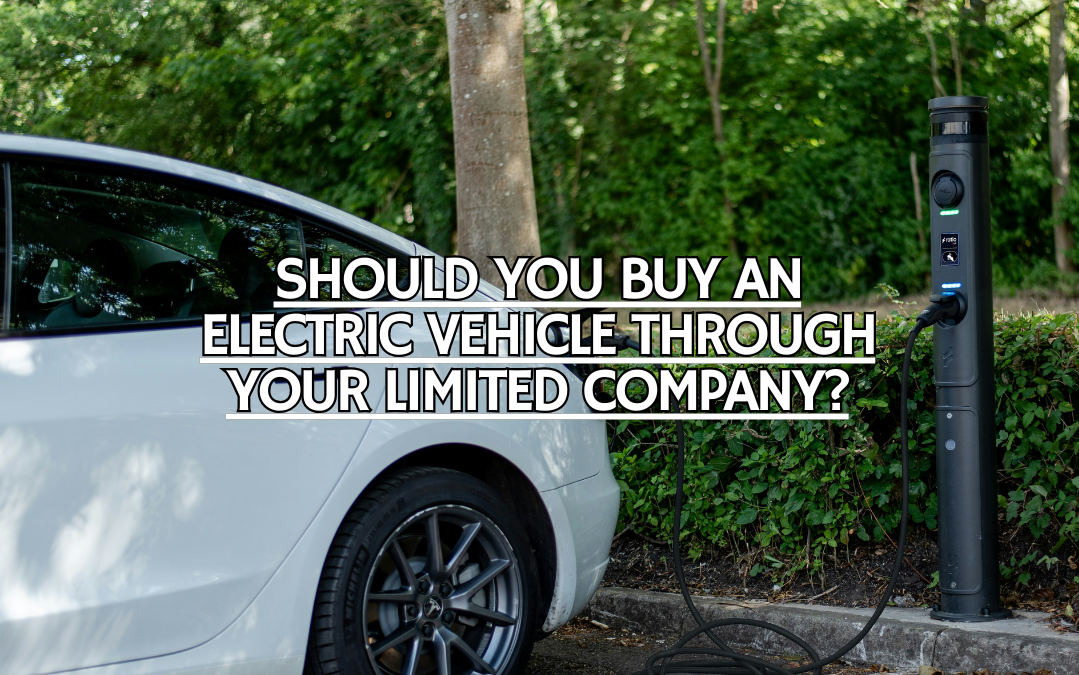Electric vehicles (EVs) continue to gain popularity, not just for environmental reasons, but also due to the potential tax savings available to UK business owners. If you’re a limited company director considering whether to buy (or lease) an EV through your business, the rules can seem complex.
Here’s what you need to know about the tax implications, reliefs, and hidden costs in 2025:
First-Year Allowances: New vs Second Hand EVs
One of the biggest incentives for directors purchasing an EV is first year allowances.
-
Brand new EVs: If your company buys a new electric car, you may qualify for 100% first year relief. That means the full cost of the vehicle can be deducted from your company’s taxable profits in the year of purchase, instantly lowering your corporation tax bill.
-
Second hand EVs: The rules are less generous. Instead of upfront relief, you’ll only be able to claim 18% per year under the writing down allowance. This spreads the benefit out over time.
In short: if you want maximum tax relief straight away, you need to buy the EV new.
Benefit in Kind (BIK): Still favourable for EVs
If your company car is available for personal use, you’ll face a Benefit in Kind (BIK) charge. This is added to your personal tax return and taxed at your marginal rate (20% or 40%).
The good news is that EVs attract a much lower BIK rate compared to petrol or diesel cars:
-
Tax year 2025/26 – 3%
-
Tax year 2026/27 – 4%
-
Tax year 2027/28 – 5%
Even at 5%, this remains far below typical BIK rates for petrol and diesel cars, which can reach 30–37%. For directors, this is one of the most attractive tax advantages of going electric.
Vehicle Excise Duty (Road Tax): A Change from April 2025
Until recently, EVs were exempt from Vehicle Excise Duty (VED). From 1 April 2025, this changes:
-
£10 in the first year
-
£195 annually from year two onwards
-
An additional “expensive car supplement” if the vehicle costs over £40,000, payable for years 2–6.
While this reduces the overall savings, EVs still compare favourably to traditional cars in terms of running costs.
Running Costs: Charging Smartly Matters
The cost of charging your EV depends largely on how and where you charge:
-
At work: Charging at your workplace comes with no Benefit in Kind charge, making it a very cost-effective option.
-
At home: Overnight tariffs can make charging cheap and efficient, especially if you’re on a reduced-rate electricity plan.
-
Public charging: Motorway and rapid charging points are usually the most expensive option, so planning ahead is key to keeping running costs down.
VAT Rules: A Common Misunderstanding
The rules for VAT on EVs are the same as for petrol and diesel cars:
-
If the car is used exclusively for business, VAT may be reclaimed (though this is difficult to prove in practice).
-
If there is any personal use, VAT cannot be reclaimed.
-
Leasing an EV? You can usually reclaim 50% of the VAT on lease payments. The full lease cost is deductible for corporation tax purposes.
Buy vs Lease, Which is Better?
Both options come with tax advantages, but the right choice depends on your situation:
-
Buying: Ideal if you want 100% first year allowances on a brand new EV.
-
Leasing: Lease payments are fully deductible against corporation tax, and you can reclaim 50% of the VAT if there’s private use. Leasing also helps with cash flow as you spread costs over time.
The Bottom Line for Directors
For many directors, EVs remain a tax efficient choice in 2025. The combination of first year allowances, low BIK rates, and deductible lease costs means significant potential savings, especially if you plan your charging strategy wisely.
That said, the financial impact of buying or leasing a company car can be substantial. It’s worth reviewing the numbers carefully before committing.
At Your Finance Team, we work with ambitious businesses to make sure big decisions like this support both your tax position and your growth plans.
📺 Want the full breakdown in under 6 minutes?
Watch our latest video here: The Truth About Electric Cars & Tax Savings for UK Directors (2025 Update)

